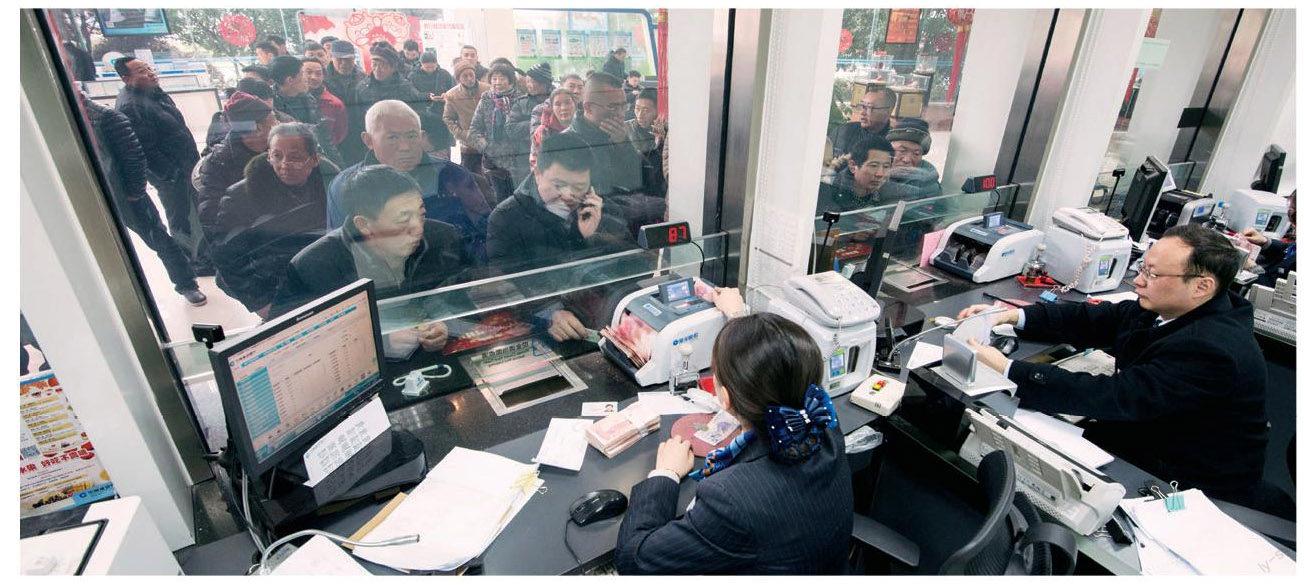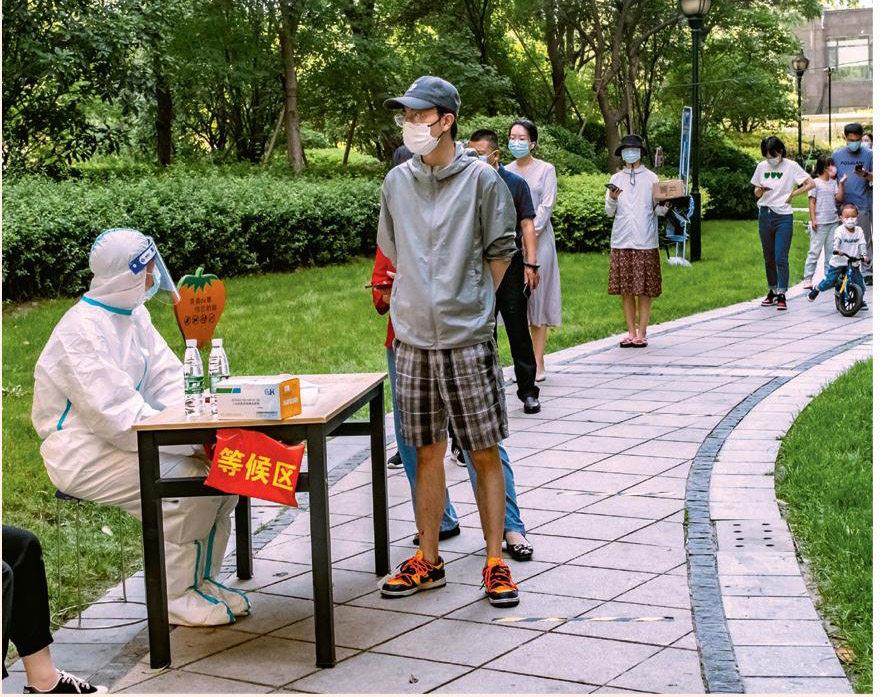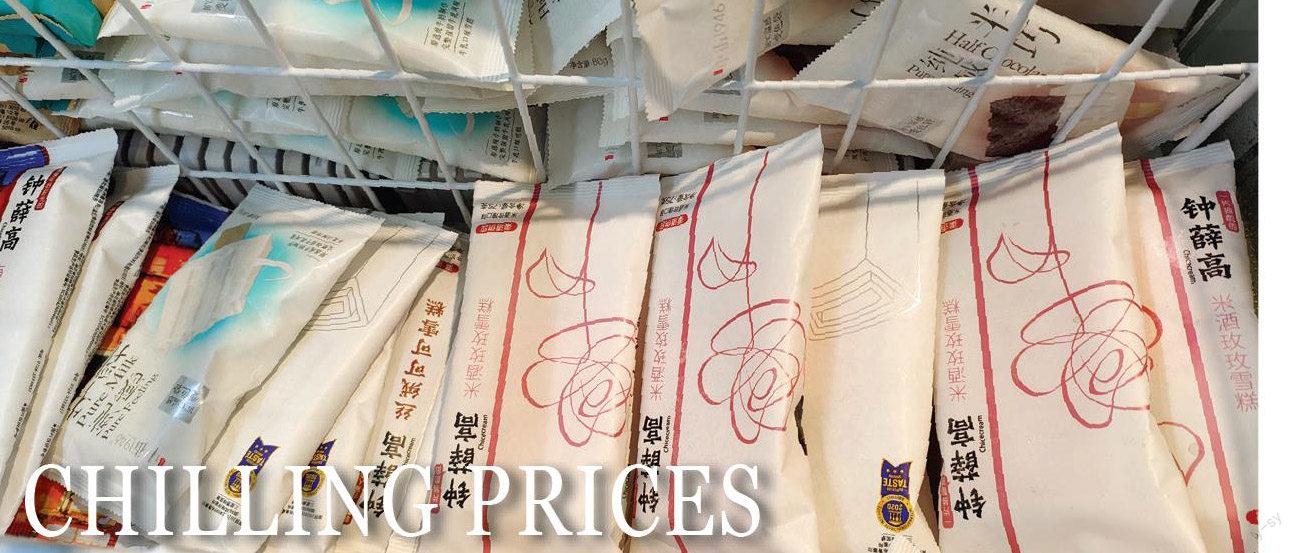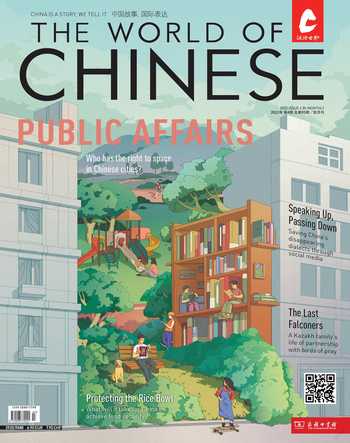Cash Withheld
by Anita He (贺文文)



Hundreds of thousands of bank depositors find their accounts frozen and savings gone
Photograph from VCG
When Yuan Ran, a civil servant from Beijing, put his savings in ShangcaiHuimin County Bank, he thought it would be a safe bet. But in April this year, his money seemed to have vanished: “My wife and I each deposited about 500,000 yuan through online platforms…now I cant get even a cent out,” says the 45-year-old, who is just one of hundreds of thousands of victims in a bank fraud case that has been running for several months in Henan province.
It started on April 18, when four rural banks in Henan and two in Anhui province cut off their online services and froze customers deposits. Since then, about 400,000 people have been unable to withdraw their money, some 40 billion yuan in total.
On June 18, Henans provincial banking and insurance regulator and the provinces financial affairs supervision bureau released a statement explaining that Lü Yi, an investor in the Henan New Wealth Group, had apparently been using online trading platforms to siphon off deposits made to the banks, diverting the money into New Wealth Groups accounts.
According to investigators, Lü, who allegedly fled abroad earlier this year, is suspected of using the rural banks for various crimes since 2011.
While authorities, including the China Banking and Insurance Regulatory Commission, continue to investigate the complex case, depositors are desperate to get their money back. “One million yuan really isnt a small number for me,” says Yuan. His deposit was mostly money he and his wife raised from selling a property in Beijing, and he invested in Shangcai because of the higher interest rate compared to larger banks.
Meanwhile, depositors who sought to travel to Zhengzhou, Henans provincial capital, in June to press the banks to return their money, found that their Covid-19 “health codes” had turned red, indicating they had been in an area labeled “at risk” for Covid infection and preventing them from traveling, despite their claims that they had visited no such locations. Zhengzhous discipline inspection and supervision commission later punished a number of officials for misusing the health codes, though several depositors alleged the same thing happened to them again a few weeks later.
The incident escalated on July 10, when around 1,000 affected customers gathered outside Zhengzhous Peoples Bank of China branch holding signs asking for the return of their money, and were attacked by groups of plainclothes men. After the protest, the provincial regulators announced they had started to return deposits for customers who put 50,000 yuan or less in the banks from July 15, and for those who had deposited up to 100,000 yuan from July 25. Those with larger deposits are still waiting for news.
“The large deposits will be paid back, [but] after deductions, based on past cases dealing with illegal fundraising,” predicts Dou Benbin, who previously worked as head of the risk management department in Shanghai Minhang Shangyin County Bank, a small-scale local bank. Dou is convinced that, since the money was taken by Lü and the Henan New Wealth Group, customers never actually deposited cash with the banks: “Legally, it has nothing to do with the banks.”
Yuan, however, refuses to accept this argument, referencing Chinas Deposits and Insurance Regulation, which covers bank deposits up to a maximum of 500,000 yuan. “We signed the deposit agreement with the banks,” says Yuan, who claims he hadnt heard of New Wealth Group or Lü before the crisis.
“Pessimistically, Id say its an accomplishment if I can get just 50 percent of my money back…but were not giving up the struggle,” he says. “We believe our deposits are legal, and will keep asking the government for the legally protected 500,000 yuan, plus interest.”
Sick Leave
A woman known as Ah Fen went viral for sleeping in the public restrooms of a Shanghai railway station since early June, and mainly subsisting on cheap bread, due to companies not wanting to hire her as she had previously tested positive for Covid-19.
Many jobless migrant workers in Shanghai have reported being rejected for positions if they have previously tested positive or worked in makeshift Covid hospitals, with recruiters alleging this was a common “unwritten rule” in many factories and small businesses. Some public places have even banned entry—Foshan Grand Theater in Guangdong province came under fire in July for denying access to recovered patients.
The Shanghai government declared on July 11 that all departments should treat recovered patients equally, without discrimination. Two days later, the State Council said discrimination against hiring recovered patients was forbidden. After the report went viral, Ah Fen finally found a job in a courier company on July 12.– YangTingting (楊婷婷)
Scorching Weather
A record-high heat wave has been plaguing most of China for over a month, leading to a sharp uptick in hospital visits due to heat stroke.
The average temperature in China this summer reached 35 degrees Celsius, with the mercury hitting 40 Celsius in some areas. Hospitals in Sichuan, Jiangsu, and Zhejiang have received dozens of heat stroke patients, four of whom have died.
About 81 cities and regions have issued red warnings, the highest level of alert, at the time of writing, indicating temperatures may exceed 40 degrees Celsius in the next 24 hours. Shanghai hit that number on July 13, for the first time since 1873.
Worldwide, an increasing number of cities have started facing extreme temperatures over the last decade. Chinese forecasters have blamed manmade climate change for the heat wave, as well as devastating floods this and last summer in cities and regions such as Chongqing, Guangxi, and Henan. – Y.T.
Chilling Prices
Videos of Chinese ice cream brand Zhong Xue Gao (known as “Chicecream” in English), showing its products not melting when held over a gas fire, triggered public debate over food additives as well as rising ice cream prices.
Most Chinese have memories of ice cream costing around 1 or 2 yuan. But prices have soared since 2019, when high-end products were in vogue. One-yuan popsicles have been disappearing from shelves due to lack of profits, according to a report from Chinese Business News.
Chicecream has been popular among young consumers since its establishment in early 2018. Its products usually sell for around 20 yuan, but the most expensive reaches up to 66 yuan—four to five times higher than its local competitors. Founder Lin Sheng attributes the premium price to the high cost of quality ingredients, like raisins grown in Turpan, Xinjiang. But the company was later fined for false advertising—they only used bulk-packaged raisins. – Y.T.

